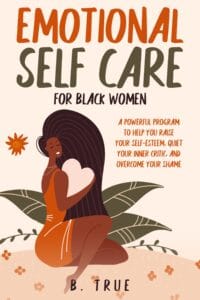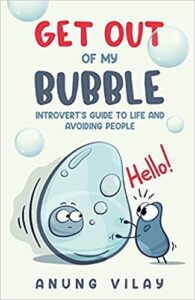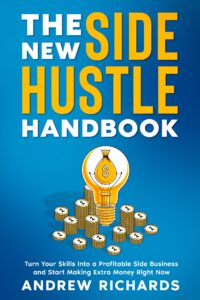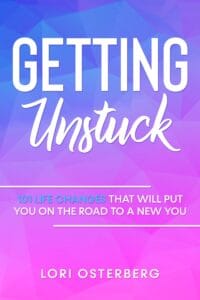You have a well of experience and knowledge within you, and you’re itching to share them with the world to help people.
Great! You have the main prerequisite of starting a self-help book. It’s time to figure out the more intimidating part.
How to write a successful self-help book?
Do you need to spend months in high mountains to enlighten yourself and learn the mysterious art of self-help? Well, you definitely could, but it’s not necessary to create a good book.
The task in front of you seems difficult, even overwhelming. But with a plan at hand, you’ll get it done. And we’re here to give you an actionable plan for writing a successful self-help book.
The requirements to writing a good self-help book
You may wonder,
“Do I need some special education to write a successful self-help book?”
Though it wouldn’t hurt, they’re not necessary.
You already have what it takes to write such a book:
- unique perspective and experience,
- ability to write coherent thoughts.
The rest is up to dedication, perseverance, and discipline.
What makes a good self-help book?
Have you ever had the anxiety that unless you are “special” or have something special to say, you can’t write a good self-help book? If so, shoosh such thoughts away.
A good self-help book is the book that appeals to the target audience.
That’s the threshold your writing should pass. Everything else is unproductive deliberation that holds you back.
Here are a few criteria that a good self-help book will have:
- It’s well-put-together;
- It helps solve the issue of your target audience;
- It does so in an engaging and memorable way.
You don’t need to be revolutionary with your content or have a prose flow of a master. Tick the three boxes mentioned above, and people will enjoy your book.
How many words in a self-help book?
Self-help books are particularly flexible when it comes to word count.
For example, the bestseller Who Moved my Cheese by Spencer Johnson has only 14,355 words. At the same time, Jordan Peterson’s 12 Rules for Life has 136,365.
So, how many words in a self-help book?
- 50,000 on average,
Keep in mind though that lengthy books can intimidate your readers. Keep things tidy and straight to the point.
Preparing to write a self-help book
Starting is often the most difficult part, especially in big projects. So let’s break preparation to write a self-help book into manageable steps.
Things to write about in a self-help book
If you’re unsure about what to write about in a self-help book, pick something important or close to you.
To find relevant self-help book topics, ask yourself what struggles and hurdles of life you overcome and how you did it?
Maybe you’d struggled with concentration for a long time, but then developed an elaborate system that helps you stay in the flow for hours on end. Or, budgeting was a nightmare for you. But, through the years, you’ve fine-tuned your finance management to the utmost efficiency.
If nothing strikes you, reflect on your experience and knowledge:
- Write down personal issues that bother or anger you;
- Find a common thread among them or a topic that burns you the most.
- Then, go on the mental journey: learn, experiment, listen, and try things concerning the topic.
You won’t even notice how you get the experience that will be an inspiration for a self-help book.
If you still struggle to find a topic for a self-help book, here are a few popular choices to help you get going:
- Mental wellbeing
- Self-discipline
- Productivity
- Financial success
- Personal finance
- Mindfulness
And remember, if you pick a topic you’re passionate about, you’ll be more likely to finish the book.
Formulate a thesis statement of your future self-help book
A thesis statement is the main idea of your self-help book stripped to its bare bones. The thesis could be a single sentence or a paragraph — whatever suits you better as long as it’s concise.
Generally, a thesis statement has the following structure:
- The problem + why it’s bad + how to solve it.
For example,
Lack of focus can have devastating effects. A well-planned system of rewards can help you concentrate, boost your productivity, and make you a happier person.
Or
The hustle culture cultivates sadness and anxiety. True happiness lies within the peace in one’s self, which is sadly understated.
Having a thesis at hand will help you to outline a self-help book and stay truthful to your book’s idea.
Research your target audience and the topic
Now that you have a thesis statement, you can research the target audience to create a portrait of your reader, including
- Their average age,
- Their cultural background,
- Their aspirations,
- Their worries and fears,
- Their likes and dislikes,
- Their everyday struggles.
It’ll be easier to provide examples, create fictional stories, and write engaging content if you know whom you engage.
Also, try to learn as much on the topic as possible. Get your hands on literature, videos, and anecdotes. Keep track of all important information.
Your findings will help you to write and sell a self-help book.
How to structure a self-help book:
You can structure a self-help book however you like. But, if in doubt, stick to classics.
The good structure of a self-help book is:
- Chapter 1: Make people care about your book; show how and why it’s relevant to them.
- Introduce the problem and yourself in a way that’s relevant to the framing of your self-help book.
-
- Show the readers that you can be trusted. You can tell how the issue affected your life to establish a connection with your audience.
-
- Hint that there’s no need for desperation as there’s a solution.
- Chapter 2 (Optional): Give your audience a deeper understanding of the issue.
- Tell the history of the issue the self-help book targets. (Don’t forget to reference all your sources!)
-
- Describe the havoc the problem wreaked and the attempts to solve it.
-
- Mention hidden caveats a person may face dealing with the problem.
- Chapter 3 – n: Step-by-step solution to the issue. Provide your system or philosophy that helps solve the issue in an engaging and concise way.
- Final chapter: conclusion.
- Summarize the journey your readers have taken.
-
- Give them some encouragement and wish them luck. Strive for a hopeful ending that motivates. If possible, echo the first chapter. For example, tell them that you’ve overcome the challenge and now you’re living a more happy life.
- Bibliography. A list of your references.
Outline your self-help book
There are people who can write well without an outline. And there are people who need an outline like air. If you’re unsure who you are, default to an outline group. Writing without an outline can be an extremely frustrating and demotivating process.
So, write an outline:
- Define the structure of your self-help book (treat it as a table of contents).
- Create a plan for each chapter and its subchapters.
- Specify what chapters will include, how presented, which references you will use, etc.
The more specific you’ll be with your outline the easier it will be to write a self-help book.
Tips on writing a self-help book
So, it’s time to sit down and actually write your book. Stay calm and breathe slowly and deeply. You’ve got it!
Here are a few tips on writing a successful self-help book to help you along the way:
Start with a hook. A few first pages decide whether a reader will stay with your book or leave. So, do your best to intrigue a reader. The most common option is starting with a story, be it a personal anecdote or some peculiar historical event. You can also hook a certain audience with interesting facts and stats. Do your research and play to your strengths.
Provide exercises. At the end of your solution Chapters, provide exercises or practical advice readers can use to start implementing your ideas into their lives.
Use visuals. Combining different modes of learning improves its efficiency. So, if possible and relevant, accompany your text with visuals that help to explain or demonstrate processes.
Appeal to authority. Quote people who have to support your thoughts. Provide stats, research, and facts on the issue to make your claims more credible. Don’t overdo it though. Your voice must be the primary narrator of your self-help book.
Cite sources. If you’re planning to include a big chunk of someone’s work in your book, ask for permission. Otherwise, cite your sources.
Appeal to emotions. Emotions sell. If you provide the most compelling evidence in the world but fail to appeal to your readers’ emotions, you’ve lost. To achieve emotional connection, be sincere about your experiences and vulnerable with your emotions; provide examples your audience can relate to; show that you understand the desires and motivations of the reader.
Treat your readers with relaxed respect like you would a good friend of yours. Feel free in your expressions but never belittle their experience and knowledge.
Stick to short sentences and use simple words for clarity and easy flow of the prose.
Give your chapters catchy titles that also provide enough context about their content.
Self-help book title ideas
A good self-help book title targets your readers effectively and makes a positive first impression. Let’s take a look at what makes an effective title.
The first thing that catches attention: self-help niche lo-oves long titles. For example,
13 Things Mentally Strong People Don’t Do: Take Back Your Power, Embrace Change, Face Your Fears, and Train Your Brain for Happiness and Success
It’s good news: you have more space to work with. But also, each word needs to be meaningful.
The most popular formula for a self-help book title is
Clever title + clarification subtitle:
- Atomic Habits: An Easy & Proven Way to Build Good Habits & Break Bad Ones
- The Four Agreements: A Practical Guide to Personal Freedom
- The Mountain Is You: Transforming Self-Sabotage Into Self-Mastery Paperback
As you see, a good self-help book title hints at the problem and simultaneously shows that the book has the solution. Also, the titles try to be catchy without being too clever to understand.
You shouldn’t necessarily follow the formula, but ensure that the title establishes the problem and claims that it has the solution.
Vague titles will not cut it in the saturated market.
Summing Up
After you’ve written the first draft of a self-help book, it’s time to test and edit it. You can learn more about how to polish your book on a budget, read our article. Besides that, we wish you a lot of perseverance and a bit of luck. Just get into the flow of creating, and you won’t even notice how your self-help book takes shape, which will propel you forward.
And if you need any help with visual book marketing materials, formatting, or book cover design, we’ve got you covered.













